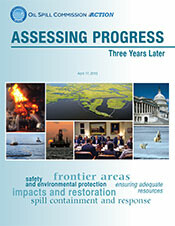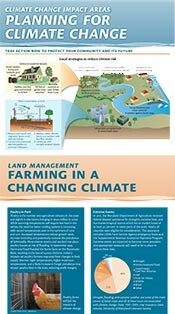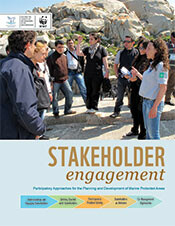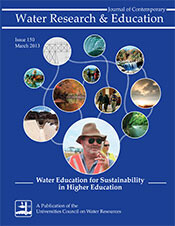Course in communicating science effectively
The Integration and Application Network is conducting a three-day course in communicating science effectively. The course is being held in Cambridge, Maryland, 7-9 May, 2013. The hands-on approach means that participants come away from the course with the technical skills to effectively communicate scientific information in a variety of communication products. Further details and online registration are available on the course website.In a second report card, the Oil Spill Commission gives Congress a D+.
 The Oil Spill Commission Action, which is an outgrowth of the National Commission on the BP Deepwater Horizon Oil Spill and Offshore Drilling, has released a second report card entitled Assessing Progress: Three Years Later. The Administration, Congress, and the Oil Industry are graded on what they have and have not done to improve the safety of offshore exploration and drilling as outlined in the preceeding April 2012 report, Assessing Progress: Implementing the Recommendations of the National Oil Spill Commission. IAN science communication staff participated in the production of both reports.
The Oil Spill Commission Action, which is an outgrowth of the National Commission on the BP Deepwater Horizon Oil Spill and Offshore Drilling, has released a second report card entitled Assessing Progress: Three Years Later. The Administration, Congress, and the Oil Industry are graded on what they have and have not done to improve the safety of offshore exploration and drilling as outlined in the preceeding April 2012 report, Assessing Progress: Implementing the Recommendations of the National Oil Spill Commission. IAN science communication staff participated in the production of both reports.
Climate Change Impact newsletters
 These two newsletters, published in collaboration with the Maryland Department of Natural Resources, provide guidance for dealing with climate change. Changes in Maryland's climate will likely have far-reaching impacts, most notably those associated with rising sea level, increasing temperatures, and changes in precipitation patterns. In order to protect local citizens from public health and safety risks and to protect public and private investments, communities should begin to plan for the impacts of climate change. Communities are encouraged to designate Climate Change Impact Areas at the local level and to develop strategies to avoid or reduce impacts. Policies can also be developed that address one or more specific climate-related impacts. These two newsletters are in a series of newsletters on Climate Change Impact Areas, with several more coming out this summer.
These two newsletters, published in collaboration with the Maryland Department of Natural Resources, provide guidance for dealing with climate change. Changes in Maryland's climate will likely have far-reaching impacts, most notably those associated with rising sea level, increasing temperatures, and changes in precipitation patterns. In order to protect local citizens from public health and safety risks and to protect public and private investments, communities should begin to plan for the impacts of climate change. Communities are encouraged to designate Climate Change Impact Areas at the local level and to develop strategies to avoid or reduce impacts. Policies can also be developed that address one or more specific climate-related impacts. These two newsletters are in a series of newsletters on Climate Change Impact Areas, with several more coming out this summer.
Participatory Approaches for the Planning and Development of Marine Protected Areas
 This report was created through the WWF/NOAA Capacity Building Partnership within the MedPAN South Project. The participatory engagement of stakeholders is perhaps the most important component of the planning and development of a Marine Protected Area. Meaningful engagement depends on the ability of practitioners to build a healthy, lasting, and trustful relationship with stakeholders, including local communities. The approaches described in this guidebook are intended to help practitioners navigate this process.
This report was created through the WWF/NOAA Capacity Building Partnership within the MedPAN South Project. The participatory engagement of stakeholders is perhaps the most important component of the planning and development of a Marine Protected Area. Meaningful engagement depends on the ability of practitioners to build a healthy, lasting, and trustful relationship with stakeholders, including local communities. The approaches described in this guidebook are intended to help practitioners navigate this process.
Special issue of Water Research & Education
 A special issue on Water Education for Sustainability in Higher Education in the Journal for Contemporary Water Research & Education was just published, an outcome of a workshop in Brisbane, Australia, organized by the International WaterCentre. The issue is dedicated to Dr. Peter Oliver, an educator who passed away last November, and includes two papers co-authored by Peter and Bill Dennison on immersive education and popular education.
A special issue on Water Education for Sustainability in Higher Education in the Journal for Contemporary Water Research & Education was just published, an outcome of a workshop in Brisbane, Australia, organized by the International WaterCentre. The issue is dedicated to Dr. Peter Oliver, an educator who passed away last November, and includes two papers co-authored by Peter and Bill Dennison on immersive education and popular education.

